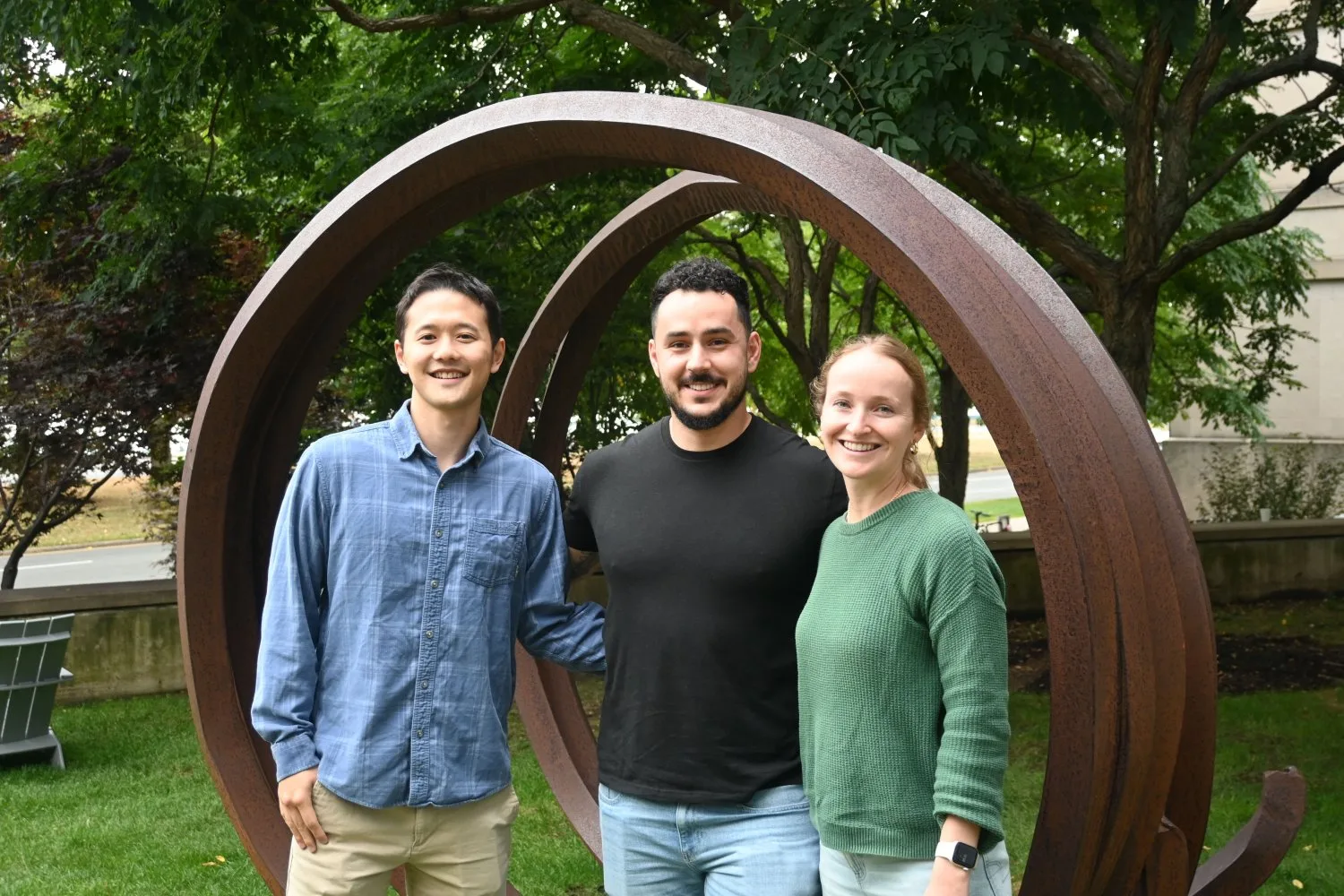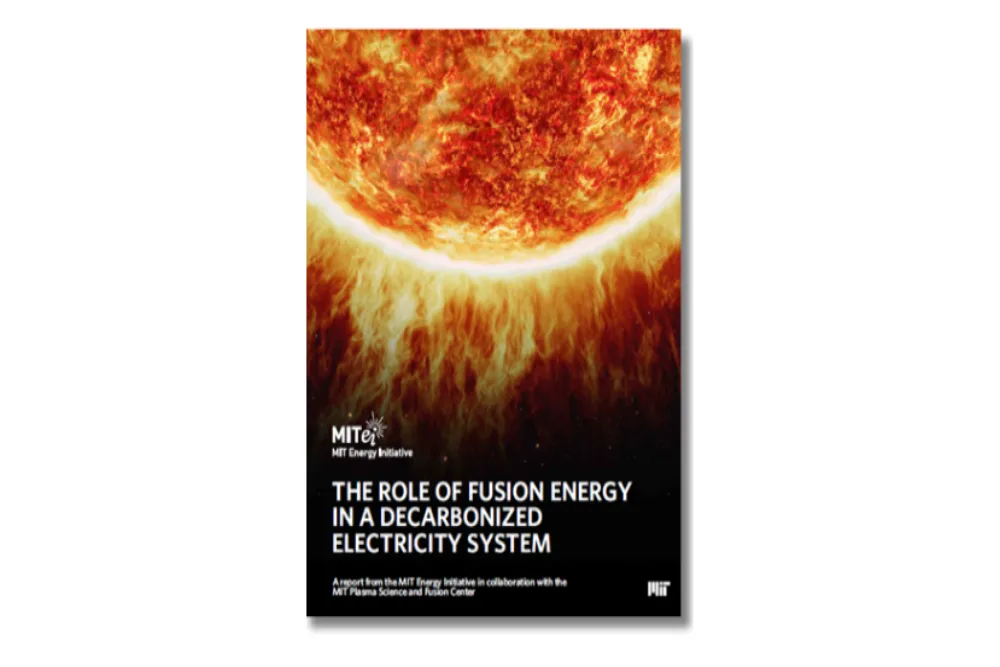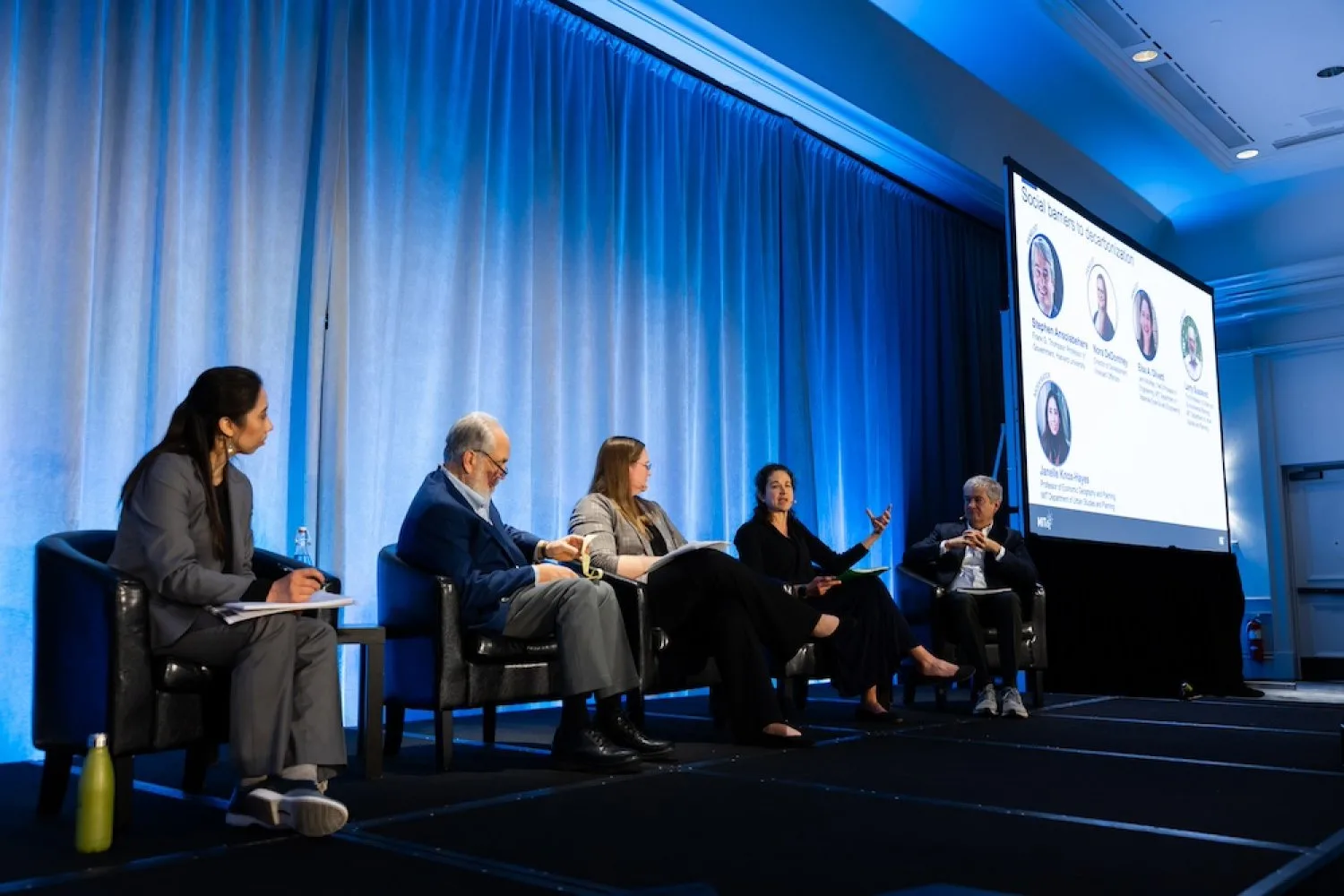At MIT, one of our key missions is to tackle some of the world’s most pressing issues, with a strong emphasis on climate change. The MIT Energy and Climate Club (MITEC), formerly the MIT Energy Club, has been dedicated to educating and informing the MIT community about this urgent challenge since its inception in 2004.
As one of the largest organizations on campus, MITEC boasts hundreds of active members from all academic disciplines, encompassing both undergraduate and graduate students. This diverse membership helps MITEC serve as a central hub for thought leadership and relationship-building at MIT.
The co-presidents of MITEC—Laurențiu Anton, a PhD candidate in electrical engineering and computer science; Rosie Keller, an MBA student at the MIT Sloan School of Management; and Thomas Lee, a PhD candidate in the Institute for Data, Systems, and Society—encourage faculty, staff, and alumni to join and engage in the club’s activities and growth.
Though they collaborate on club operations, each co-president manages specific areas to support student leaders and committees. Keller oversees External Relations, Social initiatives, the Launchpad, and the Energy and Climate Hackathon teams. Lee is responsible for the upcoming Energy Conference and assists with budget and finance, in addition to guiding the industry Sponsorships team. Anton handles marketing, community outreach, education efforts, and the Energy and Climate Night and Career Fair leadership teams.
“We view MITEC as the umbrella for everything related to energy and climate on campus,” Anton explains. “Our objective is to disseminate actionable information, not just engage in discussions. We partner with other campus organizations, such as the MIT Environmental Solutions Initiative, to heighten awareness and impact.” Currently, their Community and Education team is working with MIT ESI to create an ecosystem map for the MIT community.
To spread knowledge and stimulate interest in climate and energy issues, MITEC hosts several key events each year, including the MIT Energy and Climate Night, the MIT Energy and Climate Hack, the MIT Energy and Climate Career Fair, and the upcoming MIT Energy Conference, scheduled for March 3-4, 2025. In addition, the club provides students with opportunities to gain hands-on experience working with industry leaders like Constellation Energy and GE Vernova through their Launchpad Program.
Launched in 2006, the MIT Energy Conference is North America’s largest student-run conference focused on energy and climate issues, attracting hundreds of participants each year, including CEOs, policymakers, investors, and scholars who are at the forefront of the global energy transition.
Lee highlights the theme of the 2025 MIT Energy Conference: “Breakthrough to Deployment: Driving Climate Innovation to Market.” This theme emphasizes the critical balance between cutting-edge research and broad-scale commercial deployment to achieve climate goals.
One of MITEC’s cornerstone events is the MIT Energy and Climate Night, an annual research symposium hosted at the MIT Museum every fall, scheduled for November 8 this year. The event features select keynote speakers and numerous student research posters, allowing attendees to interact and engage with students while they showcase their work. Additionally, the club’s career fair will occur in the spring semester, shortly after the Independent Activities Period.
MITEC also creates opportunities for members to connect with companies focused on enhancing the energy sector’s resilience to climate change.
“Recently, we visited Eversource’s battery energy storage facility in Provincetown, which opened doors for our members,” Keller mentions. “This facility helps address grid reliability after extreme storms on Cape Cod, illustrating the connection between energy and climate change adaptation and mitigation,” adds Lee.
“MITEC is a fantastic way to meet fellow students at MIT whom you might not cross paths with otherwise,” Keller adds.
“We’re always eager to welcome more undergraduate students to MITEC. We offer numerous leadership opportunities for them to build their resumes,” says Lee. “We also benefit from growing collaborations with various centers on campus, such as the Sloan Sustainability Initiative and the MIT Energy Initiative, which provide us with resources and support. Student involvement is crucial; they drive the agenda of the club.”
All three co-presidents are inspired by MIT President Sally Kornbluth’s commitment to elevating climate change solutions and her recent launch of The Climate Project at MIT, aimed at accelerating climate initiatives.
As Anton states, “We’re eager to collaborate with the new directors of the Climate Project at MIT and with Richard Lester, the Interim Vice President for Climate Change, exploring how MITEC can contribute to these efforts.”
Keller, Lee, and Anton envision MITEC as a conduit for addressing climate challenges. They stress that while individual actions—like using a reusable thermos, opting for public transportation, or recycling—are vital, it’s essential to consider the broader systemic issues. They urge the MIT community to critically evaluate the infrastructure and supply chains connected to the products implicated in our daily lives.
“It’s not just about bringing a thermos; it’s about comprehending the entire life cycle of that thermos, from production to disposal, and the global climate implications of our choices,” Anton emphasizes.
Keller adds, “Everyone should actively engage with this global issue. We encourage individuals to explore how their careers can foster change—whether in finance, technology, or other fields—as this can be an exciting pathway to impact.”
“MITEC’s newsletter reaches over 4,000 subscribers, illustrating the community’s passion for energy and climate issues,” Anton concludes.
Photo credit & article inspired by: Massachusetts Institute of Technology



